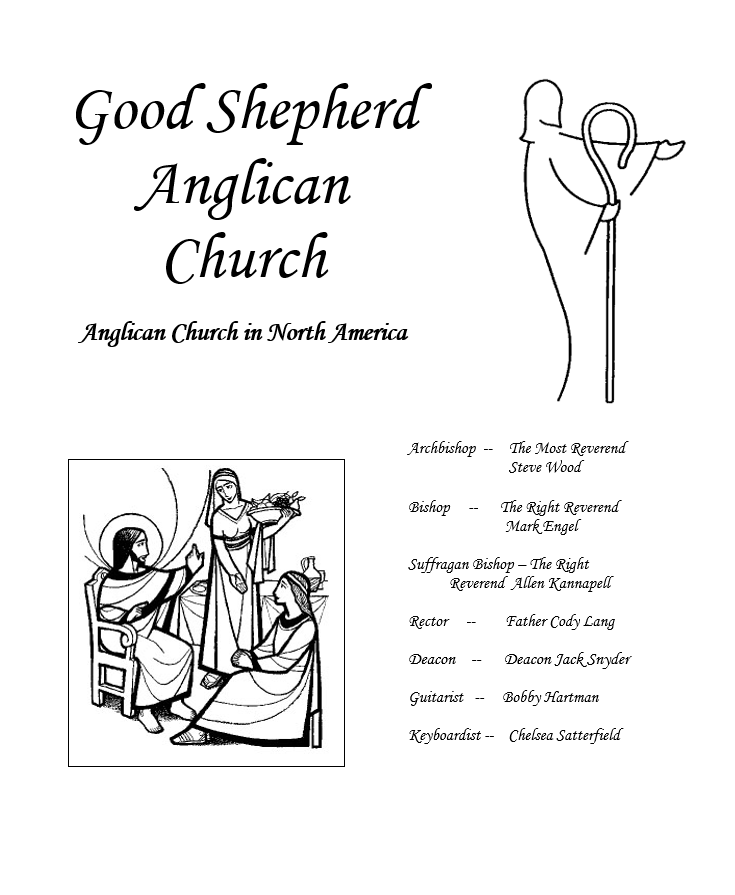VISITOR INFO
Interested in checking out Good Shepherd? We’d love for you to visit our church!
We worship God in the Great Tradition of the Christian faith, with a liturgy that is time-tested, beautiful, and Holy Spirit empowered.
As Anglicans we utilize the 2019 Book of Common Prayer as our guide to worship. To make it accessible we put everything you need, including the music, into a bulletin. You can check out a sample bulletin below. ↓
What is liturgy?
As Anglican Christians, we worship with Liturgy. Liturgy comes from a Greek word meaning “the work of the people”. But why do we worship in this way? There are four big reasons why liturgy is a reliable and powerful way to worship, though there are certainly more reasons than these!
Liturgy is Participatory: Through liturgy we become in worship what we cannot be as individuals—the people of God. Liturgy at its core is a communal and participatory act. As worshippers, we are not merely consumers of spiritual goods and services offered by worship leaders. Instead, we are essential participants in the act of worship, through song, response, confession, and receiving the sacraments, all directed towards an audience of one, God.
Liturgy is Ancient: The liturgy we follow is nothing new, it is the ancient worship of the Church from the very beginning. Traditional Christians have largely used the same form of liturgy since the earliest days of the Church. Most of our liturgy finds its root in Jewish worship, understood in light of Christ’s work of messianic fulfillment. As we worship together, we join with Christians across time and space in saying the same prayers and hearing the same scriptures. In this we are freed to worship in a way that is authentic and powerful and doesn’t rely on a constantly shifting need to be “relevant”.
Liturgy is Embodied: In worship we recognize that God calls us to offer our whole selves as living sacrifices. Our worship includes not just the thoughts of our minds or the dispositions of our hearts but also includes our very bodies. In liturgical worship we stand to praise God, we sit to listen to his word, and we kneel to pray and receive his grace. We also incorporate other actions such as bowing and making the sign of the cross, as ways of acknowledging that God is truly present among us in worship, and that it is by Christ’s authority and power that we receive the blessings offered to us in worship through the Word and the sacraments.
Liturgy is Formative: As Anglicans we follow the principle of Lex Orandi, Lex Credendi, Lex Vivendi, which means the way we pray, shapes the way we believe, and therefore shapes the way we live our lives. As we enter into the consistent rhythm of liturgical worship, our hearts are slowly transformed by the words we hear, pray, and receive in the Eucharist. Over time we begin to be formed both spiritually and intellectually through our worship to understand God better and to understand better how we are to respond to and live in the world.
